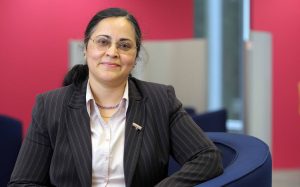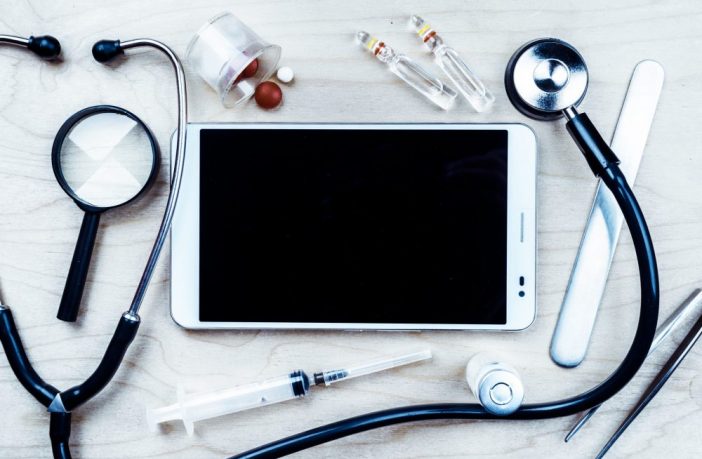
Shailey Minocha, Professor of Learning Technologies and Social Computing
With news of a healthcare smartphone app which could diagnose medical conditions and aid GP services, expert in digital healthcare Professor Shailey Minocha weighs up the pros and cons of technology becoming an integrated part of our wellbeing:
Q. Can we trust our data with Apps such as this?
“The app and underlying systems will require access to the patient data to ‘learn’ about the person and their conditions. There may be concern amongst people about sharing and storage of the data with companies that they may not trust. There will also be a concern about who else would have access to the data. Could this data be made available to employers and insurers?
“There will be ethical issues of data usage. Such ‘deep learning’ systems have to learn to identify patterns from vast amounts of data to be able to diagnose and propose interventions. Access to vast amounts of data will have ethical considerations – will people have the ‘opt-out’ facility – but would this then affect the diagnosis that they receive?
Q: Could technology ever replace a GP?
“In a face-to-face consultation, a GP/consultant picks up non-verbal cues (e.g. bruises or other skin conditions) and performs a physical examination (if required). Further, they are able to delve into family history, current circumstances such as job insecurity or unhappy married life which may be directly or indirectly influencing the person’s state of mind and health. It may not be possible for a machine to learn and process such information. There could be symptoms that a patient may not pick up to enter them into the App which only a trained medical eye will be able to spot in a face-to-face consultation.
“In our investigations, we have found that the data from such Apps and systems is useful for ‘guiding’ a GP but a holistic diagnosis and subsequent medical interventions require human input when medical professionals can ‘make sense’ of the information from Apps and propose personalised solutions based on the patient’s medical history, current visible and non-visible symptoms, their medical knowledge, etc. So, the data from Apps and systems aids the medical professionals.
Q. Couldn’t it undermine medical professionals?
“Such systems or Apps may impact on the patient-medical professional’s relationship – where a GP or a medical consultant may be challenged by the advice that they are receiving from the App/system– which may lead to legal implications in some cases and possible erosion of trust in the medical professions.
Q. What could be the benefits of diagnostic healthcare apps?
“At a patient level, these Apps and systems may be able guide a person to a healthier lifestyle and raise alerts or warning signals about future medical conditions even before the symptoms are obvious.
“So, such Apps and systems will ‘add value to medical care’, contribute towards the efficiency (e.g. being able to see more patients) and effectiveness (e.g. success in the diagnosis) of diagnoses by medical professionals, may even be able to predict an epidemic ahead of time or suggest possible future illnesses to individual persons, but not replace the medical professionals.”
Shailey Minocha is leading a research project into digital health wearables, find out more on her research project website.
Photo by Jason A. Howie 



